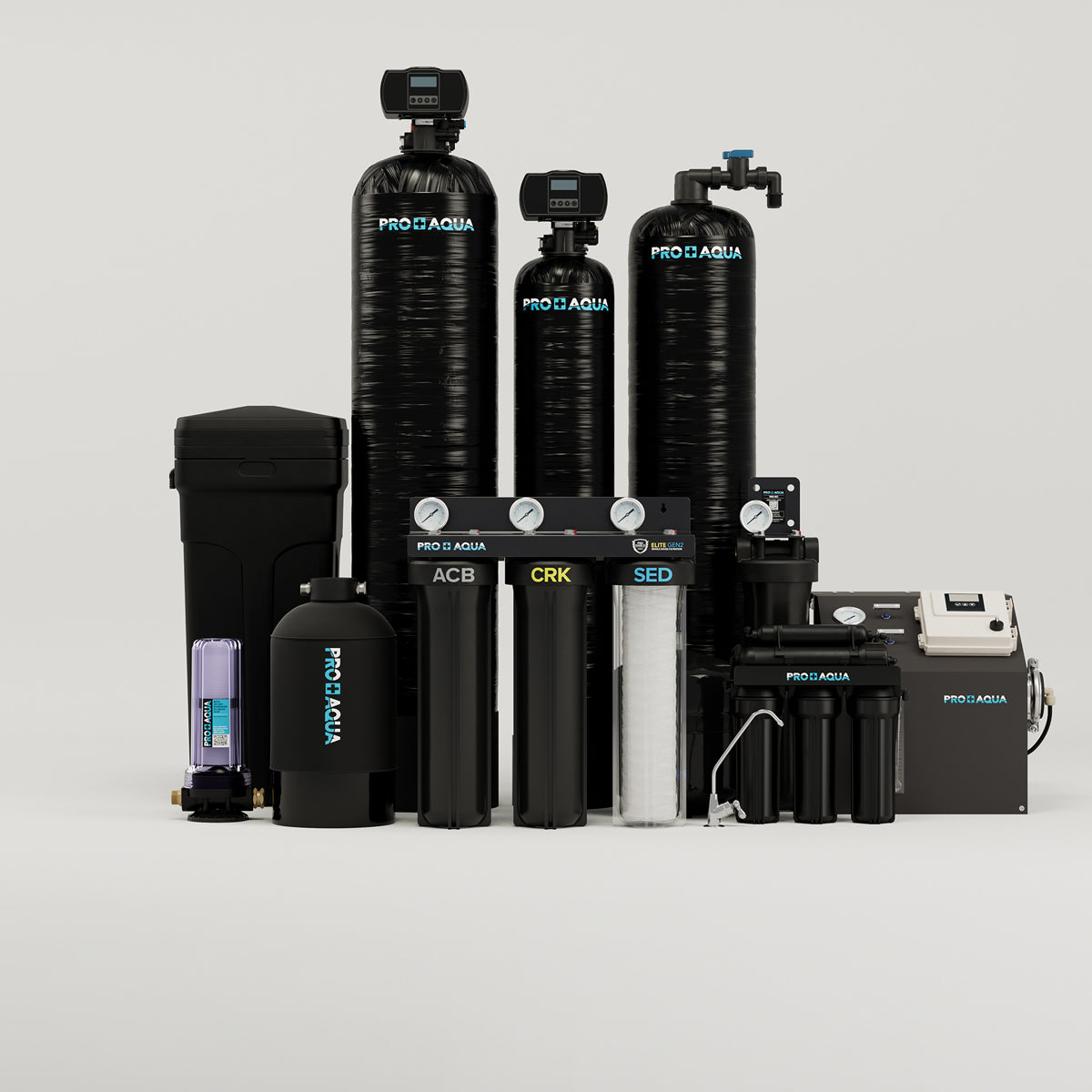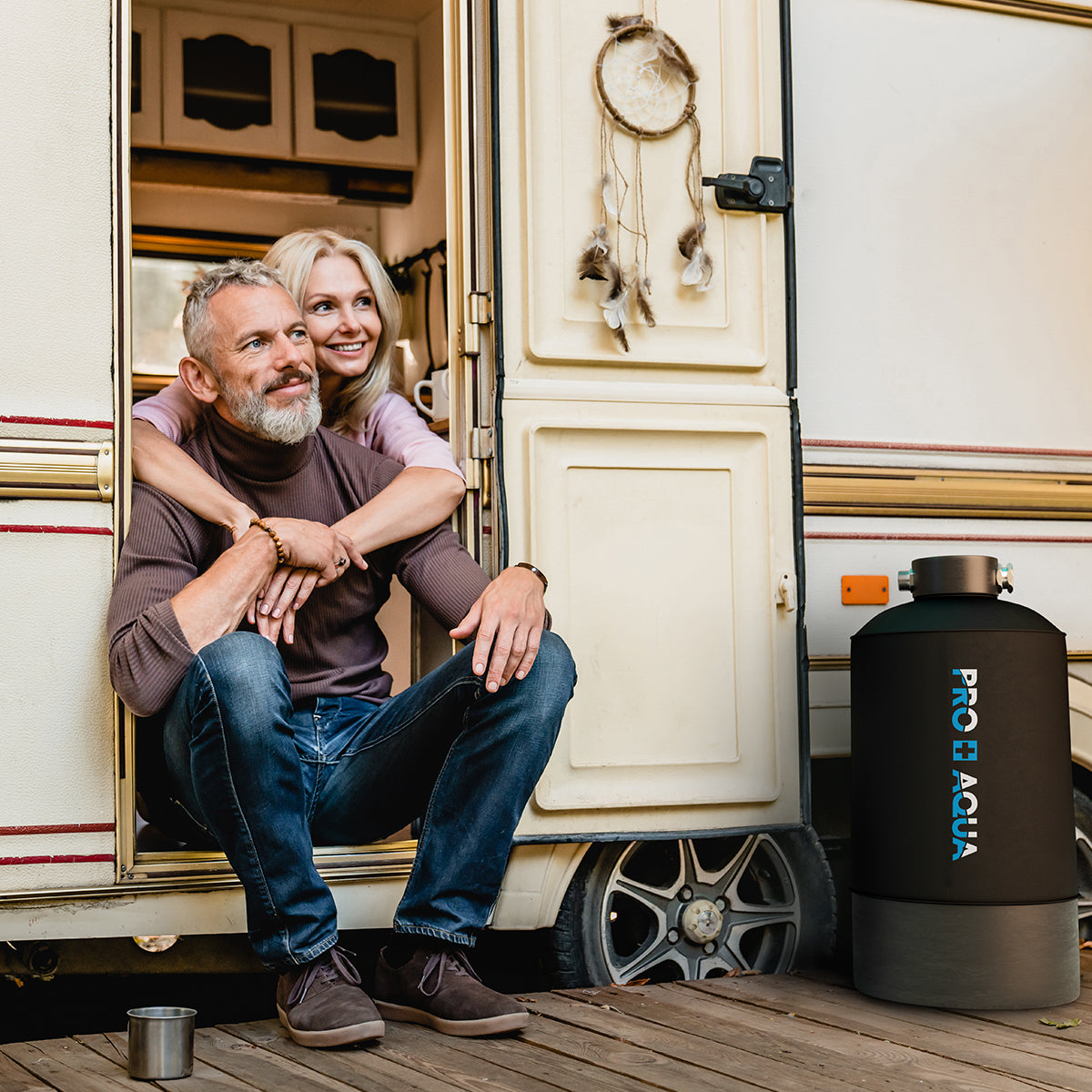Decorative fountains are some of the most beautiful features a home can have. The only problem with fountains would be the upkeep of making sure that limescale buildup doesn’t get out of hand on the surfaces and pump hardware. One of the main reasons buildup occurs would be the water used in the fountain. Truthfully, It’s a lot easier to use standard tap water for fountains since most are filled by using a garden hose connected to a spigot.

Yes, using tap water for a fountain is very convenient, but as mentioned above, the fountain will succumb to limescale build-up. This occurs because tap water has a high amount of minerals such as calcium and magnesium. When water evaporates from a fountain, those same minerals will leave deposits, and over time they form limescale on all surfaces as well as the internal plumbing and pump parts of the fountain. Cleaning limescale off fountains is very time-consuming and of course, there might be a cost associated with repairing or replacing pump components.
One of the best ways to combat limescale buildup on fountains would be to use soft water. The reason why this type of water is the best for fountains is that water goes through a chemisorption process before it can be considered soft.

Municipal and well water has high levels of calcium and magnesium. Minerals are picked up along the way from the groundwater sources such as an aquifer. These minerals are harmless to humans but can become a problem for water fixtures, all thanks to limescale.
A water softener is usually comprised of a resin tank or some may call it a mineral tank. This tank is filled with millions of little resin beads that carry a negative ion charge. Remember the fancy word we used earlier, “a chemisorption process?” This is where that process takes place. Unconditioned water that contains a high mineral content is positively charged. As it comes into contact with the negative ion charged resin beads, the minerals will exchange places with the salt that was attached to the resin. This ion exchange allows the resin to capture and hold on to calcium and magnesium and prevents it from going any further. The water coming out of the tank is devoid of those minerals and is now considered soft.
Now that you know what makes soft water better than traditional tap or well water, let’s move forward in discussing how this type of water is superior to tap. The problem with wanting to have soft water in your fountain is getting it there. If you’re lucky and have a water softener installed in your home, you can simply use it to fill your fountain.
But what if your whole house water softener isn’t plumbed to allow you to fill up the fountain? Well, you’ve got two choices, the first one is to pay someone to make the necessary plumbing changes to allow you to directly fill your fountain with soft water. That process could be fairly expensive and time-consuming. The second choice would be to acquire a PRO+Aqua Portable RV Water Softener.

The portable softener can be connected to any water spigot that is relatively near the fountain. Simply connect the included ¾” garden hose to a water source than to the softener, connect a standard garden hose to the OUT port, and use it to fill up the tank. The water coming out of the softener will be devoid of any calcium and magnesium, the very minerals that cause problematic build-up with fountains.
By simply using the portable water softener, you’re able to quickly replenish the water that has evaporated from the fountain and keep limescale at bay. Once you’re done with the water softener for the fountain, you can use it the next time you go camping with your RV. Another use for the portable water softener is for auto detailing and many professionals use it for carpet cleaning.
So to prevent any limescale issues with your decorative fountain, make sure to only use soft water produced by a portable water softener. Not only will it prevent limescale buildup on your fountain, but you can use the softener for so many other things such as camping, washing cars, cleaning, etc.





Leave a comment
This site is protected by hCaptcha and the hCaptcha Privacy Policy and Terms of Service apply.